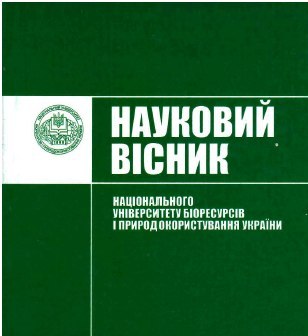The methods of the teaching of the practical course of the foreign language with the use of the newest information technologies
DOI:
https://doi.org/10.31548/philolog0(257).2016.0192%20-%20201Abstract
The purpose of the article is to research the methods of teaching the Practical course of the foreign language with the use of the newest information technologies, particularly watching films extracts.
The most important methods of teaching the Practical course of the foreign language with the use of the newest information technologies, particularly watching films extracts, have been analysed in the article.
The author distinguishes the method of discussion analysis of the situations and the method of note-taking writing after watching film extracts. Under the last method the author understands the following. Students watch a film extract during ten minutes. Then a teacher stops watching a film extract and asks students to note in a short form the main idea or the main event of this extract.
According to the author’s opinion, teachers should combine the method of discussion analysis of the situations and the method of note-taking writing after watching film extracts, but the method of note-taking writing should follow the method of discussion analysis of the situations.
Moreover, project technologies in the scopes of using the newest information technologies have been observed in the article. The author also investigates different forms of project technologies in the relations to watching film extracts. Projects can differ in form, size and time, for example, they can last several days, weeks or even months.
References
Zhuravska, N. С. (2010) Мetodologia proectuvania interactivnikh kursov na osnovi evropeyskogo dosvidu (The methodology of design of interactive courses at the basis of European experience. – К.: Vid.Tcentr. NАU. – 143 p.
Коndratiuk, А. P. (1982)Pedagogika: uch. pos. [dlia stud. ped. Inst.] / А. P. Коndratiuk. – К.: Visha shkola. – 382 s.
Lusan, P.G. (2003) Меtodi i formy organizatciyi navchania: navch. posibn. [dlia stud. ped. Inst.] / P.G. Lusan. – К.: Аgrarna osvita, – 224 s.
Мanko, В. М. (2005) Stupeneva pidgotovka: моnografia / В. М. Мanko, В. В. Іschenko. – К.: Наukovo-metodichnie tcentr, – 506 s.
Kharchenko S. (2015) Komunikatyvna kompetentsiya yak skladova profesiynoyi kompetentnosti vykladacha VNZ [Communicative competence as a component of professional competence of university teacher] / S. Kharchenko // Rozvytok suchasnoyi osvity: teoriya, praktyka, innovatsiyi : zb. materialiv mizhnar. nauk.-prakt. konf., Kyyiv, 14-16 travnya 2015 r. – K. : Milenium, 2015. – S. 176-178.
Bligh, D. A. (2000) What's the Use of Lectures? / D. A. Bligh. – San Fransisco. – 264 р.
Bushby, P. A. (2003) The Impact on Education / Р. А. Bushby, B. C. Ward // Journal of Pedagogocal Education. –№ 10 (1). – Р. 19-22.
Howe M. J. Student note-taking as an aid to learning / M. J. Howe. – Exeter University Teaching Services, 1977. – 151 p.
Isaacs, G. (1994) Lecturing practices and note-taking purposes / G. Isaacs // Studies in Higher Education. – № 19 (2). – Р. 203-216.
Downloads
Published
Issue
Section
License
Relationship between right holders and users shall be governed by the terms of the license Creative Commons Attribution – non-commercial – Distribution On Same Conditions 4.0 international (CC BY-NC-SA 4.0):https://creativecommons.org/licenses/by-nc-sa/4.0/deed.uk
Authors who publish with this journal agree to the following terms:
- Authors retain copyright and grant the journal right of first publication with the work simultaneously licensed under a Creative Commons Attribution License that allows others to share the work with an acknowledgement of the work's authorship and initial publication in this journal.
- Authors are able to enter into separate, additional contractual arrangements for the non-exclusive distribution of the journal's published version of the work (e.g., post it to an institutional repository or publish it in a book), with an acknowledgement of its initial publication in this journal.
- Authors are permitted and encouraged to post their work online (e.g., in institutional repositories or on their website) prior to and during the submission process, as it can lead to productive exchanges, as well as earlier and greater citation of published work (See The Effect of Open Access).

